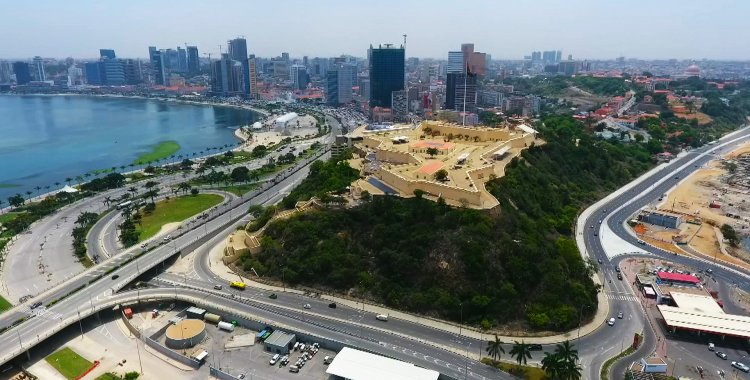In an interview with Lusa in Lisbon, where he will participate on Wednesday as a guest speaker at the 6th International Congress on Angolan Studies, promoted by the Angolan Scientific Research Network, Onofre dos Santos confessed that if he were an advisor to President João Lourenço he would tell him that, for Angolans, "more important than the past (...) is the future, the next 50 years".
Onofre dos Santos, who will speak at the meeting to be held at the Portuguese National Library about "The consolidation of the rule of law in Angola after 50 years of independence, certainties and doubts", said he believes that João Lourenço "naturally wants to change Angola", but he can only make that change by taking the "leap towards democratisation of the country", which requires external aid and investment, especially in education and health.
"Today, Angola is not a continent; it is an archipelago, with islands of wealth, but then there is an ocean of poverty surrounding them", stated the director-general of the country's first multi-party elections, in 1992.
For the retired Constitutional Court judge, "it is difficult to imagine that, in 50 years' time, a country like Angola will not be a great country, but the truth is that the expectations of independence have not been fulfilled".
"Today we are still an independent and sovereign country, but we are not a country where everyone has education, (...) health, and well-being", he added, highlighting that "everyone knows what is needed" and that, in terms of legislation, Angola has "a brutal set of fundamental rights".
"I wish they were all fulfilled", he lamented, lamenting that their fulfillment depends on national resources that in Angola are, "at the moment, finite, very finite in relation to an increasingly larger population".
In the next elections, the country is expected to have 15 million voters, while in 1992 there were "just over four million", he recalled.
He is also concerned about the training of people who hold positions or functions in the State, because "Angola has a certain deficit [in human resources]".
"Today we saw very young, very promising people in the Government, I know that they even have a very interesting academic background and a lot is expected of them", but they need to "be realistic and know that they know very little", he stressed.
Onofre dos Santos believes that Angola's institutions "reflect the excess of youth" and the fact that the positions "are temporary", giving as an example the judges who now go to the Constitutional Court at around 40 years of age and, after seven years, go home and "do nothing else, they are retired judges".
"This is complete nonsense, in terms of natural resources, and human resources are Angola's main natural resource", he said.
For Onofre dos Santos, universities should "concern themselves with creating important projects", because "students need to go beyond the basic teaching to have a certificate after four or five years. They need to take their future in their own hands".
In primary education, an exhaustive survey is necessary, because "there are several million children who do not have access" to school, due to the difficult roads, but also because there are villages that do not have a teacher "and the children are getting lost there. It is like a river that could be a source of energy and is not used", he highlighted.
In his opinion, university students could carry out this type of project, in education and also in health.
"The population of Angola is currently around 30 million (...), there must be ten million children, and probably a third will not be" in school, he estimated, in addition to the fact that "it is necessary to look at the quality of education".
"This is a huge task" for which "foreign aid is essential", he argued, adding that there are countries that can help with human resources to teach.
Confessing that education concerns him more than corruption, because it is where the future lies, he recalled that, during the colonization period, churches had "small" schools and hospitals.
Today, the solution to health and education problems should still involve these institutions, giving them support to continue doing that work, and also through the involvement of traditional authorities, as this is "fundamental to taking the leap towards democratization of the country", he added.
Onofre dos Santos, who only lived outside Angola during the period in which he graduated in Coimbra, Portugal, warned that, although the head of state is today "something almost sacred", because the Angolan parliament "has an absolute majority of the [party] of the President of the Republic", in the next elections, "this could change".







